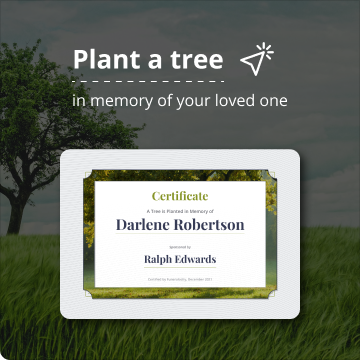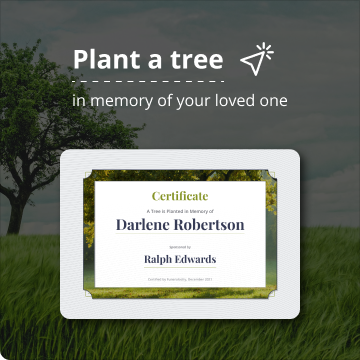
Cremation is fast becoming the “new normal” when it comes to funeral care in the U.S. Current statistics for the year estimate cremation rates of 53.5% versus a burial rate of 40.5%, which clearly shows the rising trend of more consumers choosing cremation.
But what is cremation, anyway, and how much does it cost? To better understand the basics, we’ve compiled this short, helpful guide on cremation costs and services.
What Is Cremation?
The Cremation Association of North America (CANA) defines cremation as a mechanical, thermal, or other dissolution process that reduces human remains to bone fragments. These bone fragments are further processed into cremated ashes, which is what most consumers consider to be the end product.
In the U.S., the two main cremation methods offered are:
Flame-Based Cremation
The most common type of cremation, this process uses heat and flame to reduce human remains into bone fragments. The process takes place in a machine called a crematory, and takes approximately 1-2 hours to complete. The bone fragments are allowed to cool before the final step when they are processed into cremated ashes.
Learn more about exactly how flame-based cremation works here.
Alkaline Hydrolysis
Also known as water cremation, aqua cremation, and resomation, alkaline hydrolysis uses a water-based dissolution process instead of flame. It takes about 2-4 hours to complete, and uses heat, pressure, and alkali chemicals to break the body down into its chemical compounds. Bone fragments are then turned into cremated ashes.
Alkaline hydrolysis is a newer technology and is currently available in only a few states, but it’s becoming more accessible as consumers demand cremation alternatives. This is also considered to be the “green” cremation option, as it uses less fuel and energy, and emits fewer emissions than standard cremation.
Types of Cremation Services

Most funeral homes offer a range of cremation services, allowing families to pick and choose the options that work best for them. When it comes to cremation, “one size does not fit all” and each type of cremation service can be easily customized according to individual preferences and budgets. There are three main types of cremation services:
Direct Cremation
A direct cremation, also known as simple cremation, occurs when the body is cremated immediately after death without a funeral service. A direct cremation tends to be the least expensive type of cremation.
The basic steps involve transporting the body from the place of death to the crematory, finalizing the death certificate, and cremating the deceased without a funeral or memorial ceremony. After the direct cremation is finished, the cremated ashes are then returned to the family.
Full-Service Cremation
With a full-service cremation service, the body is present at the visitation and/or funeral service before the actual cremation occurs. A full-service cremation is similar to a traditional funeral service in that friends and family are able to come together to say goodbye to their loved one before the cremation takes place.
Embalming is often recommended for full-service cremations, and in some cases, the family is allowed to witness the actual cremation. The family then receives the cremated ashes and chooses the final disposition method.
Cremation with a Memorial Service
A cremation with a memorial service is held after the cremation process is over. As such, the body is not present at the memorial ceremony, but the urn containing the cremated ashes is usually on display. This type of cremation gives the family time to arrange a ceremonial event to honor the deceased and pay their last respects.
What to Do with Cremated Ashes

As more people choose cremation over burial, the question of what to do with the cremated ashes is becoming an important conversation. There are numerous creative options available for the final disposition of cremated remains. Some families prefer to store ashes in a special place at home, and there are hundreds of decorative urns specifically designed for this purpose.
Cremated ashes can also be buried in graves, mausoleums, or in columbarium niches. Scattering ashes in a meaningful location on land or sea is also a popular option (be sure to seek permission first), and cemetery scatter gardens are becoming more commonplace.
There are other alternative options for cremated ashes. It isn’t unheard of to mix a small amount of ashes with ink for a cremation tattoo, or to launch cremated remains into space. These creative ideas vary in price and complexity, but they are worth investigating for those interested in unique final disposition choices.
How Much Does Cremation Cost?
Cremation costs depend on a variety of factors, such as the type, service, additional requests, and customizations. There isn’t a set price in general, and different providers offer competitive pricing, based on location and services requested.
In the U.S., direct cremation costs can be as low as $595. According to the National Funeral Directors Association (NFDA), the median cost of a full-service cremation was $6,260 in 2017. This amount included the following median prices:
Funeral Director Services
The basic services provided by the funeral director are non-declinable. They include filing the death certificate, procuring permits, arranging the funeral service, ensuring safe handling of the remains during transportation, and general overhead expenses. Cost: $2,100 or more.
Removal of Remains
The costs of transferring the body from place of death to the funeral home. Cost: $325
Embalming Process
Although strongly recommended for viewings/wakes, embalming is not a legal requirement if the body is immediately cremated. Cost: $725
Body Preparation
This includes services such as clothing, doing makeup, styling hair, and washing the body. Cost: $250-$500
Viewing & Ceremony Facility Usage
Includes rental charges for the funeral home venue and staff labor costs for the viewing and the funeral service. Cost: $925
Transportation
Involves a service vehicle, such as a car or van. Cost: $150
Memorial Print Package
Basic funeral programs, memorial cards, printed keepsakes, etc. Cost: $160
Cremation Fee
If a funeral home uses a crematory other than their own. Cost: $350
Cremation Casket
The body must be placed in a casket or other cremation container before entering a cremation machine. Cost: $1,000
Urn or Other Receptacle
Cremated ashes are returned to the family in an urn. Cost $275
Learn More About Cremation Planning
Are you thinking about including cremation in your end of life plan? Get more information on how to plan a cremation with our expert guides and information.














